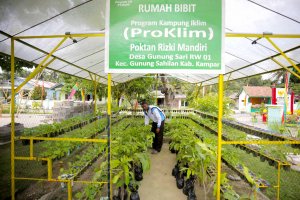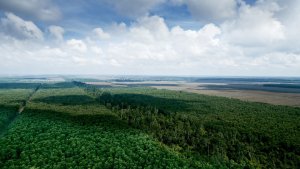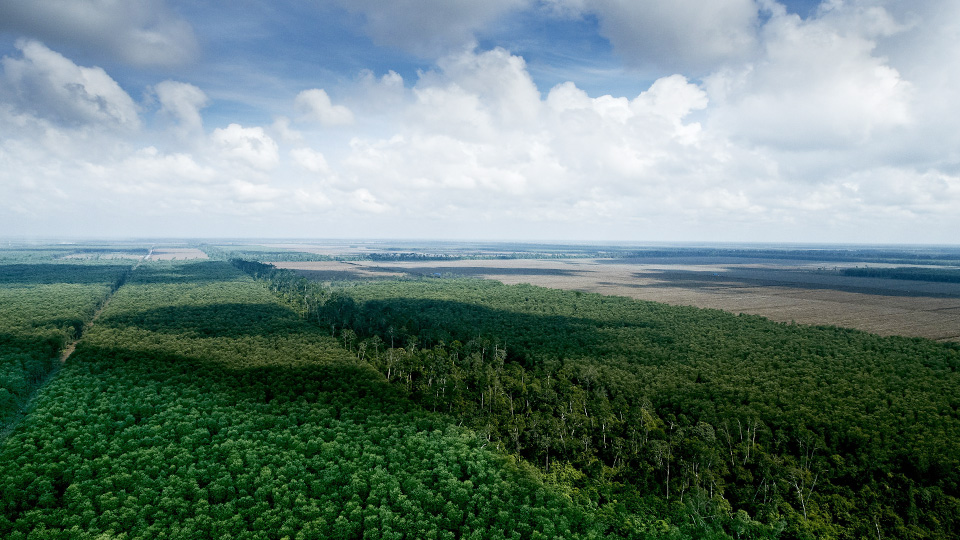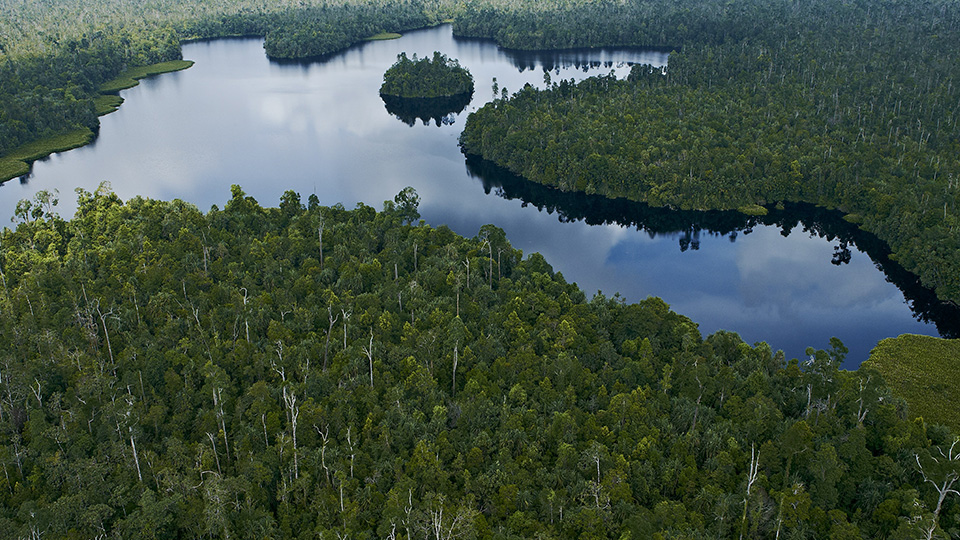APRIL’s Commitment to Conservation - Anderson Tanoto at WEF
- Details
APRIL Group’s commitment to the long term conservation and restoration of forest landscapes was highlighted during a panel discussion at the World Economic Forum last month. Speaking on a panel titled ‘Building a Net-Zero, Nature-Positive Economy’, RGE Managing Director Anderson Tanoto provided an update on the company’s investment in its restoration programs and shared his thoughts on the need for integrated approaches to climate change and nature loss mitigation.
The panel discussion also featured UNEP Executive Director Inger Andersen, China Society for Finance and Banking’s Chairman of the Green Finance Committee Ma Jun, Federal Minister of Climate Change and Adviser to the Prime Minister of Pakistan Malik Amin Aslam, and Greenpeace International Executive Director Jennifer Morgan.
Anderson Tanoto touched on a variety of topics concerning the opportunities and challenges in how businesses can positively impact nature. Referencing APRIL Group’s US$100 million commitment to conservation and restoration, announced at the 21st Conference of Parties (COP21) in Paris in December 2015, Anderson Tanoto explained this unprecedented commitment demonstrated the company’s efforts to tie business together with nature as capital. This commitment involves matching the areas of forest conservation and restoration with the plantations owned by APRIL, in line with the company’s production-protection model.

Anderson Tanoto also spoke about APRIL Group’s 1-for-1 commitment, which conserves 365,000 hectares, as part of the company’s stated undertaking to conserve one hectare of forest for every hectare of plantation. The company learned that the processes of forest restoration and protection to that of “letting nature heal itself” were both cost effective and cost efficient.
Longer term protection still requires long-term commitments. Of the $100 million restoration and conservation commitment, Anderson Tanoto revealed that US$45 million has already been spent in the last five years on the protection of 150,000 hectares of restored forests beyond APRIL Group’s conservation areas. He quipped, “Conservation is not cheap - it is dirty, messy, challenging. That’s the reality on the ground. We must be able to roll up our sleeves and get the job done.”
Anderson Tanoto elaborated on how the company has explored implementing a self-tariff model in which, for every tonne of plantation wood produced from the landscape, a self-imposed tariff of a dollar is apportioned to conservation and restoration. He recognised that while global discourse on natural capital financing continue to build momentum, RGE is moving ahead in exploring a self-funded model that is both feasible and pragmatic on the ground.
In his World Economic Forum blog post, Anderson Tanoto also referenced APRIL’s recently launched APRIL2030 strategy, which includes specific commitments and targets regarding conservation. “We have refreshed our commitments to chart our sustainability path for the next 10 years, targeting ambitious goals for 2030. We aim to deliver a positive impact on climate, nature and people. We must transform our businesses as we embrace innovation and circularity.. Most importantly, we must align the KPIs and metrics of our organizations so that environmental sustainability and business growth can be on the same side of the equation”.
View the video recording of Anderson Tanoto’s World Economic Forum 2021 panel discussion here.
More Articles






